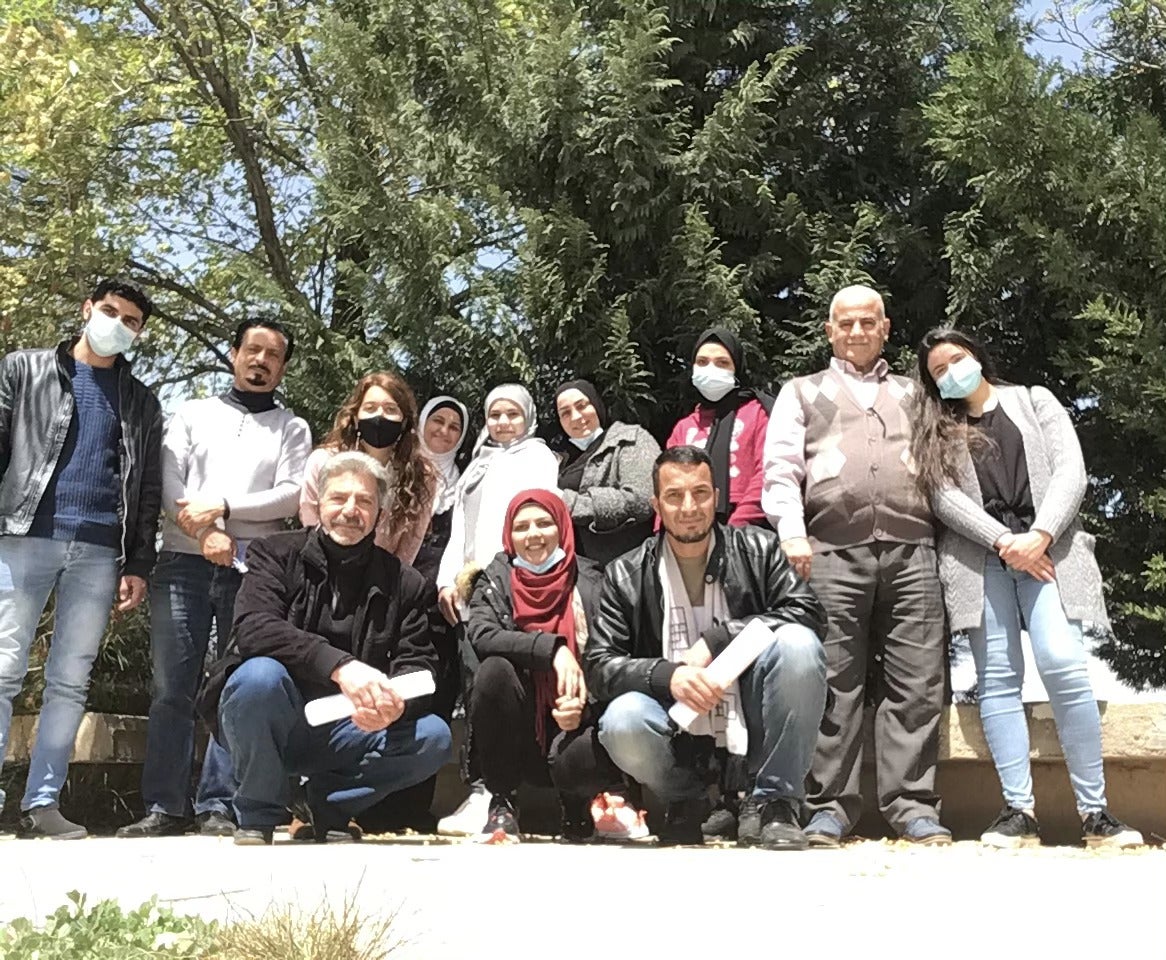Brighter Futures supports refugee students in Lebanon
In Brighter Futures, experts from VU Amsterdam and local partners (CIS college and the SPARK Foundation) are helping the educational institutions Al Kayrawan, Learning Through Action (LTA) and the Renovation and Development Association (RDA) to strengthen their educational skills, curricula and psychosocial services. In addition to training in innovative teaching methods, including blended learning, educational programmes have been developed focusing on skills that can improve the opportunities of refugee students on the labour market. Attention is also being paid to psychosocial help for students.
Brighter Futures is led by Jorn Dormans and Mekky Zaidi, both enthusiastic project managers. “Unfortunately, we haven’t yet been on site. Normally we would have visited, but COVID-19 forced us to set up all our projects online. You do miss the personal and informal contact and the atmosphere of the location itself, but we have great partners who share photos and keep us informed of what’s going on and what the institutions need. Naturally, we hope to be able to get there soon. The positive energy that people can have despite their problems is truly moving. You draw energy from that. And it helps you put things into perspective; it’s a reminder of what’s really important in life.”
Collaboration with VU faculties and institutes
Jorn: “We always work together with experts from various VU faculties and institutes. In Brighter Futures we’re cooperating with the LEARN! Academy. They train, coach and advise professionals in higher education, often through action learning in co-creation with teachers and students. Together we looked at how we could design a programme best suited to this situation. The goal is to team up with local organisations to ensure that teachers can continue to provide quality education, so it really means working closely together. Online training involves different challenges than if you were teaching on site. Power cuts, bad internet connections … At those moments, we’re pleased to be working with local partners who can monitor the project from the front lines and make adjustments as needed.”
Collaboration with local educational institutions
One such partner is Al Kayrawan, a technical and vocational education and training (TVET) institute. Kassem Muhammad Naserdin is a lecturer in computer science and director of the institute. As a native of the Bekaa region himself, Kassem is highly motivated and knows how important it is for students to gain practical experience: life skills and entrepreneurship skills, for example, that will enable them to set up a company with which they can support their families. His personal mission is to provide his students—locals and refugees alike—with the best possible education so that they can have a better future. He enjoys seeing how his students support one another and show understanding of the personal challenges they face. He is committed to creating an environment in which all students feel safe and all stories are welcome. Find out more here.
The other partners are Learning Through Action (LTA) and the Renovation and Development Association (RDA). [Onderstaande informatie is via een link achter de organisaties beschikbaar] LTA focuses on community and human development and contributes to the implementation of education policy through extracurricular education and training programmes. LTA works with socioeconomically marginalised and oppressed groups, especially children, young people and women in Lebanese society in general.
Founded in 2003, the RDA is an NGO mainly active in the education and healthcare sectors. It operates a primary school, a technical and vocational training centre and two health centres in the Bekaa region. The technical and vocational training focuses on multidimensional employment support and courses comparable to those offered by Al Kayrawan and LTA. The RDA’s services are aimed at both Lebanese citizens and Syrian refugees living in the Bekaa region.
A glimmer of hope
The ingredients of the programme may seem normal to us, but they are far from guaranteed in an area where many refugees find themselves living together in difficult conditions. The Brighter Futures project thus serves as a reminder that although we consider good education and safety a matter of course, this is not the case everywhere and for everybody. The project offers hope and support for both students and teachers, with a view to creating a brighter future.
You can find more information and blogs on their website.
Brighter Futures runs until March 2023 and is funded by Nuffic.
This project contributes to the following SDG's:
- SDG 4: Accessible education, quality education, employment skills
- SDG 5: Gender equality, empowerment of women
- SDG 10: Reducing inequality.

